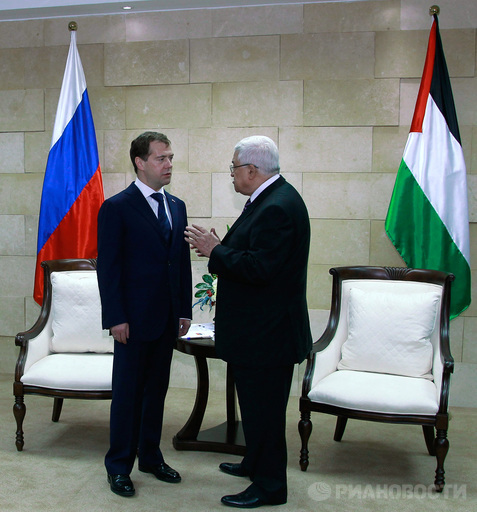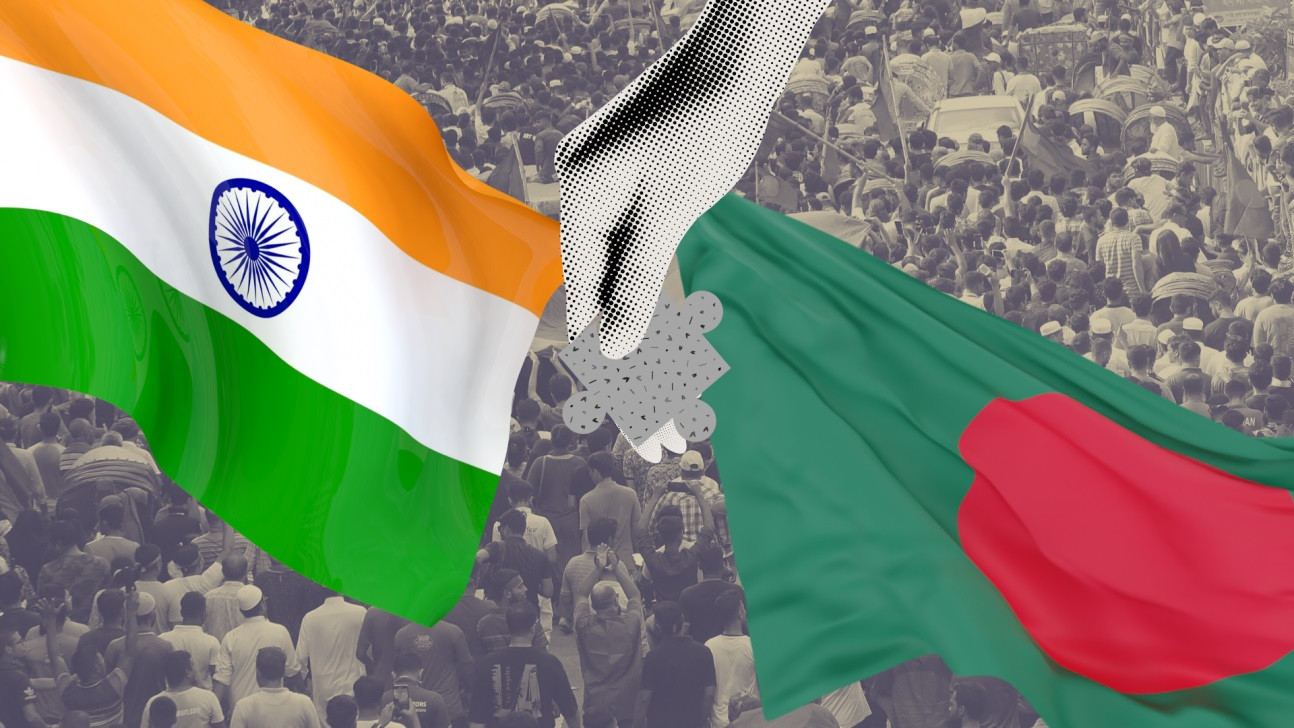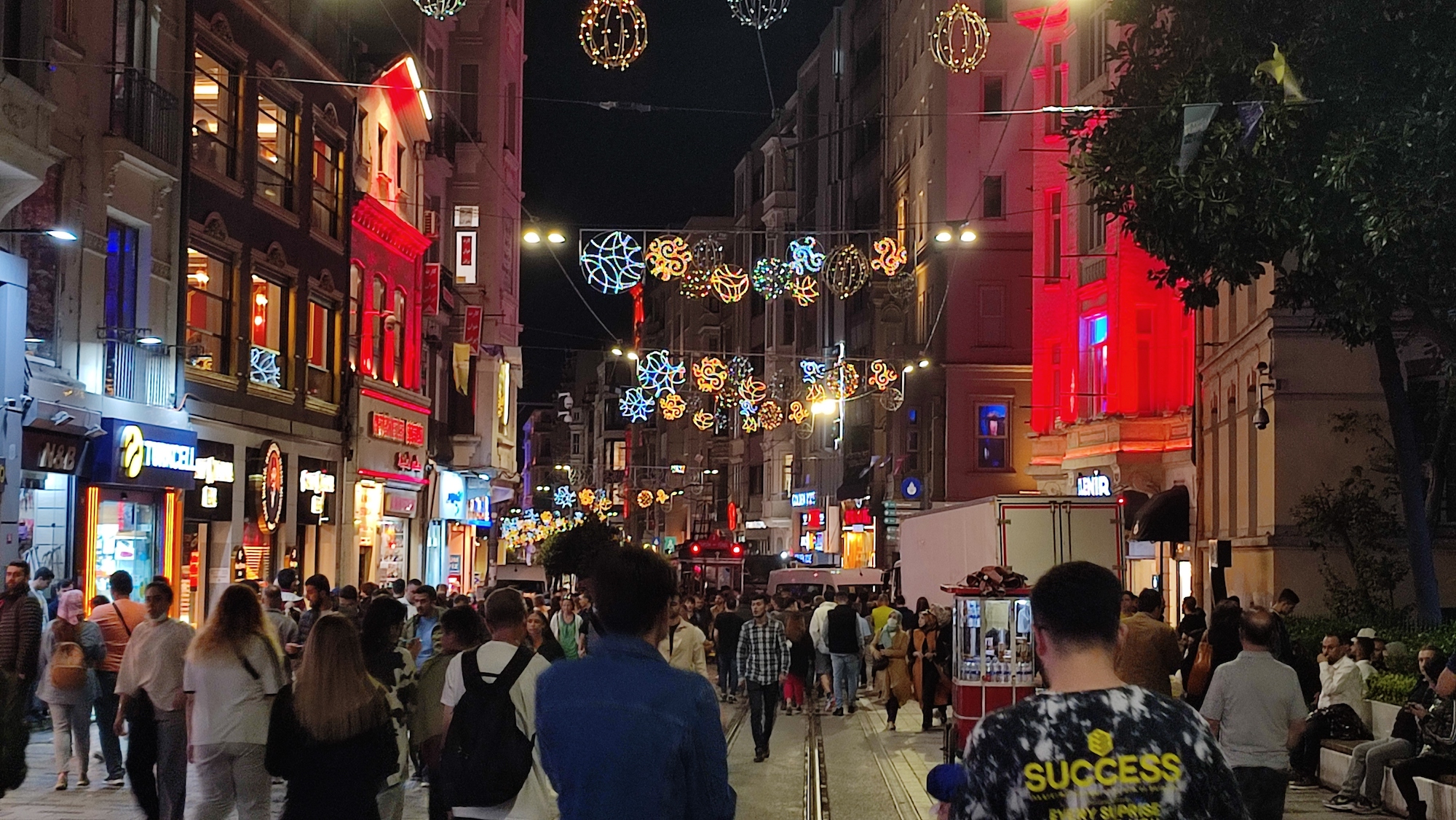Igor Serebryany, Zhang Dailei
MOSCOW, March 25 (Xinhua) — Russia made an attempt to narrow the gulf between Israelis and Palestinians by successively inviting their leaders to Moscow this week.
Though Palestinian President Mahmoud Abbas and Israeli Prime Minister Benjamin Netanyahu have not met face to face here, the fact that both leaders were invited almost at the same time raised hopes that they may bury the hatchet, political experts said.

“TWIN VISITS:” NO COINCIDENCE
Russia invited the two leaders amid the worsening situation in the Middle East and North Africa, which, as Russian President Dmitry Medvedev told Abbas, might affect the Mideast peace process as a whole.
Moscow is willing to facilitate the peace process as a mediator between both sides by wielding its clout.
Russia currently has at least two advantages: Neither side of the peace process refuses such a mediation, and the United States is overwhelmed by its operation in Libya.
The timing of Abbas’ and Netanyahu’s visits wasn’t a coincidence, Maytham Al Janabi, professor at the Peoples’ Friendship University of Russia, told Xinhua.
“In certain situations both Israelis and Palestinians trust Russia more than they trust the Americans,” the expert said. He noted that current relations between the U.S. administration and Israel have been cool, and that Palestinians valued Russia’s well-balanced position on Libya and moves in other Arab countries.
Therefore, the expert believed Moscow is exerting efforts to re-activate and enhance its role under these new circumstances in the region, where profound changes have been occurring.
“Traditionally, since the Soviet times, Arab leaders used to consider Moscow as their ally. Now Russia wants to play an impartial mediator and tries not to create an impression it is holding talks behind one’s back,” Al Janabi said.

DIFFERENT OBJECTIVES
Analysts said though Netanyahu arrived in Moscow close on the heels of Abbas, the leaders are actually pursuing different objectives here.
The focus of Abbas’ visit was to get Russia’s support in pushing forward the Mideast peace talks and recognition of an independent Palestinian state.
In Moscow, Abbas said if Palestinian-Israeli peace couldn’t be reached this year, “it would be very hard to reach in the future.”
He also said Palestinians have been seeking peace, stability and security in the region.
However, Eugeny Satanovsky, an expert from Moscow’s Institute for Middle Eastern Studies, said Moscow feels no acute need for a closer alliance with the Palestinians and was unlikely to hastily recognize an independent Palestinian state.
He said Moscow found it difficult to handle the Palestine problem. “But, at the same time, Moscow did not want the Americans or Europeans to take over initiative in the region,” he said.
Compared to the Palestinian leader, Netanyahu pursued more pragmatic aims in Moscow: improving trade, developing hi-tech projects, and combating terrorism.
“For Israel, Russia’s support is less crucial than for the Palestinians. Israel is a self-sufficient entity. While Russia’s ties with Palestine have been of a kind of ‘nostalgic’ nature, Russia’s ties with Israel are forward-looking,” Satanovsky said.
Benny Briskin, Netanyahu’s adviser during his first term in office, told Xinhua that the Israeli leader considers Russian leaders very pragmatic.
“This is how Netanyahu tries to persuade them to support Israel, describing the practical benefits Moscow might receive by blocking anti-Israel resolutions in the UN, or by ceasing to support Iranian nuclear efforts,” Briskin said.
The Iranian issue is a headache for Israel, and neither Russia nor the United States apparently has any real tools to prevent Tehran from developing nuclear weapons.
NEW MOMENTUM AGAINST OLD OBSTACLES
Local experts believed the fact that “twin talks” were taking place in Moscow meant the Mideast peace process was gaining new momentum.
“No talks could resolve the decades-long problem at once, and the long-term vision of the Mideast settlement differs considerably between Arabian and Israeli people. So, under these circumstances, the very fact that the talks are underway is encouraging,” Al Janabi said.
However, experts also noted that simply judging from Abbas’ and Netanyahu’s words to each other in Moscow, Russia has failed to help remove old obstacles in the Mideast peace process.
Netanyahu blamed Abbas for being reluctant to meet him.
“Abbas has been traveling extensively round the world, visiting the UN and going everywhere except Jerusalem. To complete such talks one must get them started. He has been refusing to start them,” Netanyahu said in an interview with the Rossiya 24 television channel.
However, Abbas said he didn’t mind meeting Netanyahu face to face, “if the necessary judicial base will be created.”









